
In my previous two blogs, I have looked mainly at the early Soviet contributions to space exploration: Sputnik, the first artificial satellite to reach Earth orbit, and the first manned space flights.
The landing of two astronauts, Neil Armstrong and Buzz Aldrin, on the surface of the moon in July 1969, put the US firmly at the head of the space race.
Looking back from 2015, I can’t help but be rubbed the wrong way by some of the macho rhethoric that surrounds this mission. The goal stated by US president Kennedy in 1961 was “of landing a man on the Moon and returning him safely to the Earth” before the end of the decade.
If the USSR had made a point of sending a woman into space early in the game, in the US, women weren’t chosen for space missions until Sally Ride’s flight in 1983 – and no woman austronaut so far has gone past Earth orbit.
On a side note: reading the article on Women in space on Wikipedia left me with the distinct impression that someone, somewhere, seems to think that “motherhood” somehow stands in the way of being a successful astronaut. Whoever wrote that, does not seem to worry that space flight might impair a man’s ability to be a father! And here I was thinking we live in the 21th century.
There also seems to be a slight disconnect between the emphasis on the peaceful nature of the Apollo 11 mission – “We came in peace for all mankind” – and the fact that this event was firmly about scoring points in the Cold War! Not to mention the good old conquistador urge to claim the moon as property, by planting flags and leaving inscriptions.
Then again, maybe I am just a cynicist … one of my very earliest memories is of the buzz that accompanied watching one of the moon missions on our little black and white TV. I was just barely two years old in July 1969, so I am not sure if I remember the Apollo 11 mission, or one of the subsequent landings – but I belong to a generation who have grown up in the knowledge that humans can fly to the moon.
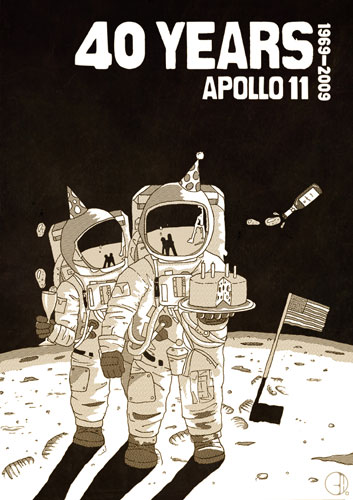

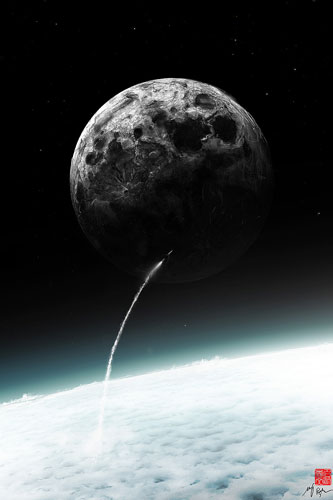

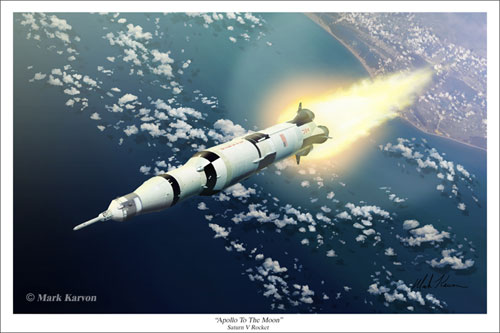
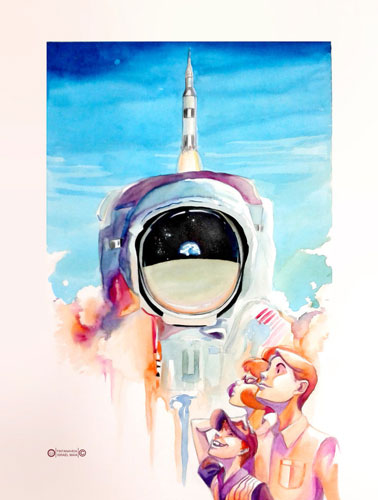
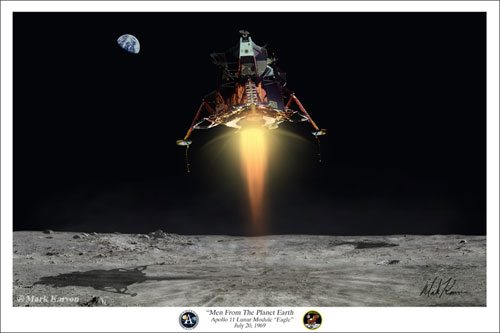

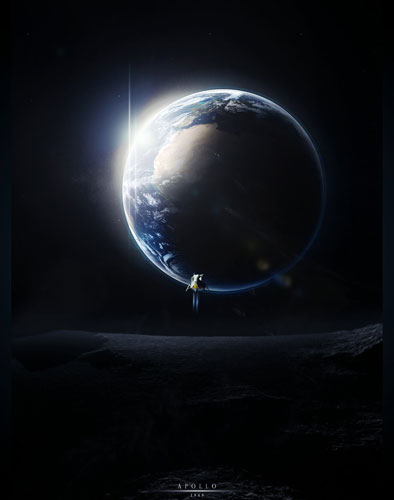
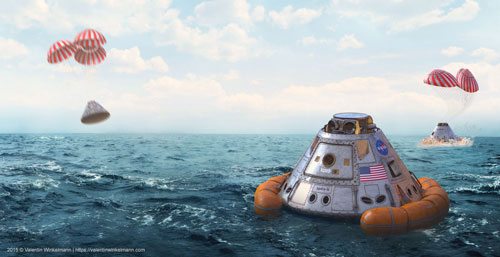

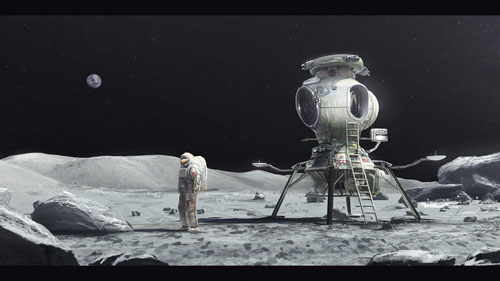
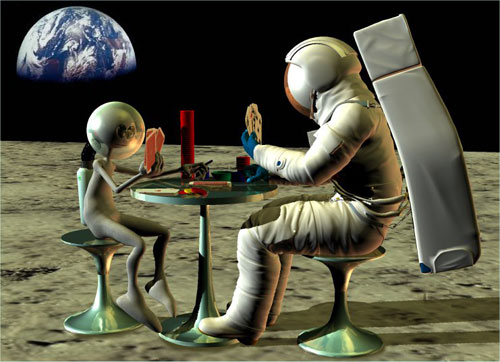

All images are copyright the respective artists, and may not be reproduced without permission.










